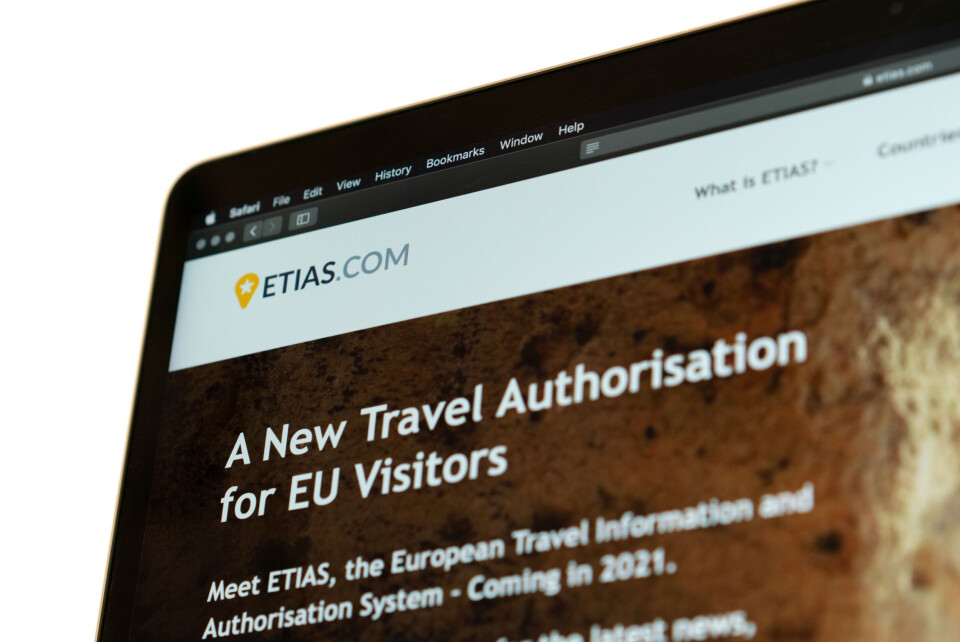-
90/180 days rule: readers tell of impacts on health and on family and working life
Rule affects Britons post-Brexit as well as other non-EU citizens such as Americans
-
French airports request EES rollout suspension this summer
Risk of congestion feared if April full deployment of system for all eligible passengers takes place
-
Ryanair may allow dual British nationals to travel to UK without UK passport despite ETA rules
Airlines must carry out checks before boarding to ensure passengers have right to enter UK
How can the EU’s proposed Etias and EES systems not be Brexit revenge?
The security measures will be gradually rolled out from September and mean some non-EU citizens, including Britons, having to pay a small fee to enter the Bloc

Reader question: How can it be that the EU’s new Etias and EES systems are not revenge for Brexit, as you have claimed, seeing as how they will disproportionately affect Britons?
In short, the answer is that the systems were already under discussion several months before the Brexit referendum in June 2016.
This is shown in a communiqué from Brussels published on April 6, 2016, titled: Stronger and Smarter Information Systems for Borders and Security. You can read the paper here.
Further to this, former labour MEP Claude Moraes told The Guardian last year that David Cameron, British prime minister at the time of the talks, was one of the major backers of the updated security systems.
“The UK government was one of its biggest supporters, obviously prior to the referendum, and Etias was seen as part of the digital securitisation of borders that the UK wanted to lead on in the EU,” Mr Moraes said.
He previously chaired the European parliament’s home affairs committee, which was responsible for negotiating the Etias regulation with the EU.
Baroness Sally Hamwee, a Liberal Democrat politician and the chair of the House of Lords Justice and Home Affairs Committee, has raised the question of what issues the implementation of these security systems will cause the UK.
Read more:UK must explain Etias to travellers to EU, says British politician
She told The Connexion previously that she had enquired about the UK’s involvement in early Etias discussions but does not know to what extent the country was involved.
It is clear, though, that the systems were already in the pipeline before any British voters backed the UK exiting the EU.
On top of this, the new systems will involve not just British people, but will also include passport holders of 59 countries who want to travel to Schengen member countries, such as those from the US, Canada, Australia and New Zealand (See those in yellow at this link).
The UK’s Daily Express has previously described it as a “Brexit revenge tax”.
What is Etias and EES?
Etias is a ‘visa waiver’ and is similar to the US system ESTA. It will be required for travellers with visa-free access to all Schengen member countries, future Schengen member countries, European Free Trade Association countries (Iceland, Liechtenstein, Norway and Switzerland) and European microstates (Monaco, Andorra, San Marino, Vatican City).
The Republic of Ireland does not fall under any of these.
Once in place, any British, American, Canadian, Australian, Japanese or other non-EU person with visa-free access to the Schengen countries travelling to France will have to apply for Etias approval in advance, costing €7.
An Etias authorisation remains valid for a period of three years.
“The [Etias] system will cross-check travellers against EU information systems for internal security, borders and migration before their trip, helping to identify ahead of time people who may pose a risk to security or health, as well as compliance with migration rules,” the European Commission stated on August 3, 2021.
It will work in conjunction with another digital security system - the Entry/Exit System (EES).
The EES is essentially an electronic passport check. It will record the details of non-EU citizens entering the Schengen Area, including name and passport details, entry and exit dates, a photograph and an image of the traveller’s fingerprint, and will replace the need for a passport stamp.
The EES is to start being rolled out from the end of September this year.
Then, from early 2023, non-EU travellers are also expected to have to apply online for travel authorisation under ‘Etias’.
Read our full coverage of these systems here, with articles in chronological order (it is worth noting that the implementation of these systems has been delayed several times, so certain dates stated in our earlier articles may now be incorrect):
EES/ETIAS: UK must clarify effects of new EU systems, says politician - July 1, 2021
Etias: New €7 fee to come into Schengen zone is not Brexit related - August 7, 2021
Etias: What is new EU €7 entry process and how might it affect you? - August 25, 2021
UK must explain Etias to travellers to EU, says British politician - August 25, 2021
Will non-EU residents of France need Etias to return from trip abroad? - August 30, 2021
EU’s new entry and exit systems problematic, say UK travel chiefs - November 4, 2021
Logistical concerns over EU Entry/Exit System due to start in autumn - February 9, 2022
























